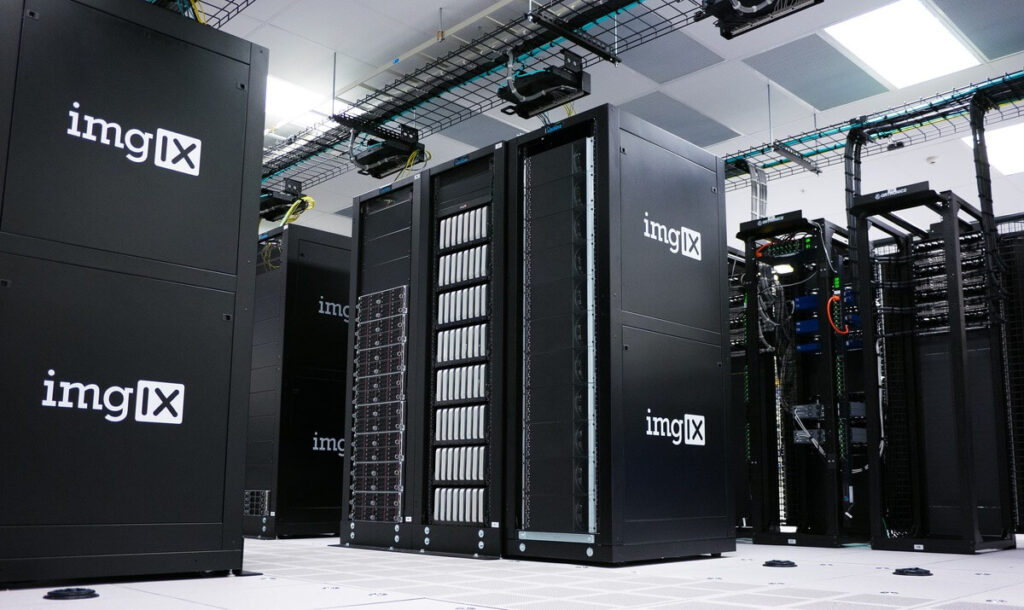Retail Investment Properties

Investing In Commercial Retail Property
Commercial real estate investing has long been an attractive option for investors looking to generate steady income and long-term appreciation. Among the various types of commercial real estate investments, retail commercial investment properties offer a unique opportunity for investors to capitalize on the ever-evolving retail industry.
Retail commercial investment properties are real estate properties that are designed and used for retail purposes, such as shopping centers, strip malls, standalone retail buildings, and other retail spaces. These properties are intended to generate income for the owner through rental income and capital appreciation.
Investing in retail commercial properties can offer several benefits for investors, including potential for stable cash flow, diversification, potential for long-term appreciation, and tax advantages. However, like any investment, retail commercial investment properties also carry risks, such as economic downturns and fluctuations in the retail industry, that can affect rental income and property values.
The Historical Rate Of Return
The historical return rate on retail commercial investment properties can vary depending on several factors such as location, property type, market conditions, and investment strategy. However, there are some general trends and averages that can provide investors with an idea of what to expect in terms of returns.
According to data from the National Council of Real Estate Investment Fiduciaries (NCREIF), the historical average return for retail properties from 1990 to 2020 was approximately 8.2% annually. This includes both income returns, such as rental income, and appreciation returns, which is the increase in property value over time.
It’s important to note that this average return can vary widely based on the specific investment property and market conditions. For example, properties located in prime retail areas with high demand and occupancy rates may yield higher returns than properties located in less desirable areas with lower demand and higher vacancy rates.
Key Purchasing Factors
Location
Location is a critical factor to consider when investing in retail commercial properties. Properties located in high-traffic areas with strong demographics, such as high population density, high income levels, and strong employment rates, are generally more attractive to tenants and can command higher rental rates.
When evaluating potential properties, consider the accessibility of the location, proximity to public transportation, and competition from other retail properties in the area. Additionally, consider the local zoning regulations and how they may affect the property’s potential use.
Tenant Mix
The tenant mix is another crucial factor to consider when investing in retail commercial properties. A well-diversified tenant mix can help mitigate the risks of tenant turnover and economic downturns.
When evaluating potential properties, consider the types of tenants currently occupying the space, their lease terms, and their creditworthiness. Additionally, consider the potential for attracting new tenants and the current demand for the property type in the local market.
Lease Terms
Lease terms can significantly impact the potential cash flow and long-term appreciation of retail commercial investment properties. Longer lease terms provide greater stability and predictability of cash flow, while shorter lease terms offer greater flexibility and potential for higher rental rates.
When evaluating potential properties, consider the length of the lease terms, rent escalations, and tenant renewal options. Additionally, consider the potential for renegotiating lease terms and rental rates in the future.
Property Condition
The condition of the property is also a crucial factor to consider when investing in retail commercial properties. Properties in good condition generally require less maintenance and can command higher rental rates.
When evaluating potential properties, consider the age of the property, the quality of construction, and any necessary repairs or renovations. Additionally, consider the potential for future capital expenditures, such as roof repairs or parking lot repaving.
Financing
Financing is an essential factor to consider when investing in retail commercial properties. While commercial real estate loans generally require higher down payments and stricter underwriting standards than residential loans, they can provide attractive interest rates and terms.
When evaluating potential properties, consider the potential financing options available and the terms of the loan. Additionally, consider the potential for refinancing the loan in the future to take advantage of favorable market conditions.

Getting Started With Your First Property
If you’re thinking about buying your first retail commercial investment property, it can be an exciting and potentially lucrative opportunity. However, it can also be a complex and challenging process. In this guide, we’ll provide a step-by-step overview of the process of buying your first retail commercial investment property.
Determine Your Investment Goals and Criteria
Before you begin searching for a retail commercial property to invest in, it’s important to determine your investment goals and criteria. What type of property are you interested in? What location are you looking for? What is your budget? What is your target return on investment? These are all important questions to consider before beginning your search.
Research Potential Properties
Once you have a clear idea of your investment goals and criteria, you can begin researching potential properties. Use online real estate listing websites, talk to local real estate agents, and attend real estate auctions to find properties that match your criteria.
Conduct Due Diligence
Once you’ve identified a potential property, it’s important to conduct thorough due diligence. This includes reviewing the property’s financial statements, property condition reports, and lease agreements. You should also have the property inspected by a professional inspector to identify any potential issues or maintenance needs.
Secure Financing
If you’re planning to finance your investment, it’s important to secure financing before making an offer on a property. Shop around for lenders and compare interest rates, terms, and fees to find the best financing option for your needs.
Make an Offer and Negotiate Terms
Once you’ve completed due diligence and secured financing, you can make an offer on the property. Be prepared to negotiate with the seller to reach agreeable terms, including purchase price, closing costs, and other details.
Close the Deal
Once you and the seller have agreed on terms, you can close the deal. This typically involves signing a purchase agreement, transferring funds, and recording the deed.
Manage and Maintain the Property
After you’ve closed the deal, it’s important to manage and maintain the property to maximize your return on investment. This may involve finding tenants, managing leases, and handling maintenance and repairs.
Buying your first retail commercial investment property can be a complex and challenging process, but with careful planning, due diligence, and professional guidance, it can also be a lucrative investment opportunity. By following these steps, you can increase your chances of success and achieve your investment goals.
Commercial Retail Proprieties In Phoenix, Arizona
Phoenix is a major city and commercial hub in the Southwest United States, with a robust retail industry that supports a wide range of retail commercial properties. Some examples of retail commercial investment properties in Phoenix, AZ, include:
Biltmore Fashion Park: This high-end shopping center is located in the affluent Biltmore neighborhood of Phoenix and features over 50 upscale retailers and restaurants, including Saks Fifth Avenue, Anthropologie, and True Food Kitchen.
Arizona Center: This mixed-use development in downtown Phoenix features over 1 million square feet of retail, dining, and entertainment space, including a movie theater, a Dave & Buster’s, and several restaurants.
Tempe Marketplace: Located in the neighboring city of Tempe, Tempe Marketplace is a popular outdoor shopping center that features over 1.3 million square feet of retail space, including major retailers like Target, Barnes & Noble, and H&M.
Desert Ridge Marketplace: This outdoor shopping center in North Phoenix features over 1.2 million square feet of retail space, including major retailers like Macy’s, Old Navy, and Petsmart.
Specialty Investment Properties
Power Centers – Power centers are large retail commercial investment properties that typically feature several big-box retailers, such as Home Depot or Walmart, as anchor tenants. These types of properties are often located on the outskirts of major metropolitan areas and offer a wide range of shopping options to consumers.
Neighborhood Centers – Neighborhood centers are smaller retail commercial investment properties that typically serve local communities. They may include grocery stores, convenience stores, and other essential businesses. Neighborhood centers are often located in suburban areas and offer convenient access to local residents.
Mixed-Use Developments – Mixed-use developments are retail commercial investment properties that combine residential, commercial, and/or office space in the same building or complex. These types of properties are designed to create a sense of community and offer convenience to residents who can live, work, and shop in the same location.
Free-Standing Buildings – Free-standing buildings are retail commercial investment properties that are not part of a larger retail center or complex. They are often located on busy roads or in densely populated areas and may include businesses such as restaurants, banks, or retail stores.
Specialty Centers – Specialty centers are retail commercial investment properties that focus on a specific niche or theme, such as health and wellness or outdoor recreation. These types of properties are designed to attract consumers with a specific interest or passion and may include specialized retailers, fitness centers, or other businesses.

Data Center
Data centers are another type of commercial investment property that investors may consider. Data centers are specialized facilities that are designed to house computer systems and other IT infrastructure. They are used to store and process data for businesses, organizations, and government agencies.
Data centers are typically large, high-tech facilities that require significant investments in construction and maintenance. They are designed to provide reliable and secure data storage and processing capabilities, with features such as redundant power and cooling systems, advanced security measures, and high-speed connectivity.
A data center is not typically considered to be a retail commercial investment property. While retail commercial properties are used for commercial purposes, such as the sale of goods or services to customers, data centers are specialized facilities that are used to store and process data for businesses, organizations, and government agencies.
Retail commercial properties are typically located in high-traffic areas, such as shopping malls or business districts, and are used by a variety of businesses to sell their products or services to consumers. Data centers, on the other hand, are often located in more remote or suburban areas, and are designed to provide reliable and secure data storage and processing capabilities for a specific group of clients.
Additionally, the leasing arrangements for data centers are typically different from those of retail commercial properties. Data centers are often leased on long-term contracts to a specific client or group of clients, while retail commercial properties are typically leased to multiple tenants on shorter-term leases.
While data centers and retail commercial properties have different characteristics and leasing arrangements, they can both be attractive investment opportunities for investors. However, investors should carefully consider their investment goals and do thorough research before investing in either type of property.
Investing in data center properties can offer several advantages to investors. One major advantage is the strong demand for data storage and processing capabilities in today’s digital economy. With the growth of cloud computing and big data, businesses and organizations of all sizes require reliable and secure data centers to store and process their data.
Additionally, data centers are often leased on long-term contracts, which can provide investors with stable and predictable cash flows. Data center leases may also include annual rent increases or other escalations, which can provide additional income streams to investors.
Medical Retail Properties
medical retail commercial investment properties, which are also known as medical office buildings (MOBs). These types of properties are designed to cater specifically to medical and healthcare-related businesses, such as doctors’ offices, dental practices, clinics, and diagnostic imaging centers.
Medical retail commercial investment properties typically offer specialized features that are not found in traditional office buildings. For example, they may include larger exam rooms and waiting areas, special medical equipment, and ample parking to accommodate patients. They may also be located near hospitals or other medical facilities to provide convenient access to healthcare services.
Investing in medical retail commercial properties can offer several advantages to investors. One major advantage is the stable demand for healthcare services, which can lead to consistent rental income. Additionally, medical office buildings are often leased on long-term leases, which can provide investors with stable and predictable cash flows.

Investing in Phoenix Retail Properties: A Guide to Finding Profitable Real Estate
Phoenix is a rapidly growing city in the southwestern United States, with a booming real estate market. One area of the Phoenix real estate market that offers great potential for investors is retail properties. In this article, we’ll explore the benefits of investing in Phoenix retail properties, how to find profitable opportunities, and what to look for when evaluating potential investments.
Why Invest in Phoenix Retail Properties?
Phoenix is a vibrant and growing city with a strong economy, making it an ideal location for retail properties. There are several reasons why investing in Phoenix retail properties can be a smart move for investors:
- Growing Population: Phoenix is one of the fastest-growing cities in the country, with a population of over 1.7 million people. As the population continues to grow, so does the demand for retail spaces, providing investors with steady income from tenants.
- Strong Job Market: Phoenix has a diverse economy with a range of industries, including healthcare, technology, and finance. This strong job market attracts more people to the area, further driving demand for retail spaces.
- Stable Real Estate Market: While the real estate market in Phoenix can experience fluctuations, it has historically been stable and has seen steady growth over the past decade.
Finding Profitable Phoenix Retail Properties
When searching for profitable Phoenix retail properties, it’s important to work with a real estate agent who is familiar with the local market. These agents can help you find properties that match your investment goals and provide valuable insights into the market.
Additionally, you can search for Phoenix retail properties online through real estate marketplaces and listing websites. These sites provide information about properties for sale, including location, price, and key details about the property. You can also search for properties that are currently leased to retail tenants, providing a reliable source of passive income.
What to Look for When Evaluating Phoenix Retail Properties
When evaluating Phoenix retail properties, there are several factors to consider:
- Location: The location of the property is crucial for retail spaces, as it can impact foot traffic and overall demand. Look for properties in high-traffic areas with easy access to major roads and highways.
- Condition: The condition of the property is another important factor to consider. Look for properties that are well-maintained and have updated features, such as modern HVAC systems and attractive storefronts.
- Tenant Quality: The quality of the tenants is a key factor in determining the value of the property. Look for tenants with strong financials and established businesses to minimize the risk of missed rent payments or vacancies.
Conclusion
Investing in Phoenix retail properties can provide investors with steady income from reliable tenants, as well as potential appreciation in property value over time. By working with a qualified real estate agent and conducting thorough due diligence, investors can find profitable opportunities in this growing market.
Spotlight
Peter Wilke was a novice in the world of retail commercial property investing. He had always been interested in real estate and had some experience in residential properties, but he wanted to expand his horizons and try his hand at commercial properties. He decided to start small, with a small retail strip mall in his local area.
At first, Peter struggled to understand the complexities of commercial property investing. He was unfamiliar with the zoning regulations, property taxes, and tenant lease agreements. He spent countless hours reading books, attending seminars, and talking to experts in the field. But even with all of this research, he was still making mistakes and losing money.
One day, Peter decided to take a different approach. Instead of trying to do everything himself, he sought the help of a mentor – a seasoned commercial real estate investor who had been in the business for decades. His mentor showed him the ropes and helped him navigate the complicated world of retail commercial property investing.
With his mentor’s guidance, Peter started to make smarter investments. He found a profitable niche in medical office buildings, which were in high demand due to the growing healthcare industry. He also learned to negotiate leases and property management contracts with tenants, ensuring a steady cash flow.
As he gained more experience and success, Peter became a subject matter expert in retail commercial property investing. He started speaking at industry conferences and writing articles for real estate publications. He even wrote a book about his journey from novice to expert, sharing his insights and strategies with others who were just starting out.
Years later, Peter’s portfolio had grown significantly. He owned multiple medical office buildings, retail shopping centers, and even a few data centers. He had become a respected figure in the industry, known for his shrewd investments and innovative strategies.
Looking back on his journey, Peter realized that his success was due in large part to his willingness to learn, seek guidance, and never give up. He had gone from a novice in the field to a subject matter expert, and he was proud of what he had accomplished.
Why is it important to find a commercial real estate company who specializes in commercial retail space?
Finding a commercial real estate company that specializes in commercial retail space is important for several reasons. Firstly, a specialized company will have a deep understanding of the retail market, including market trends, competition, and the needs of retailers. This means they will be able to provide you with valuable insights and guidance when it comes to making investment decisions.
Secondly, a specialized company will have a network of industry contacts, including retailers, developers, and investors. This network can be invaluable when it comes to finding suitable properties, negotiating deals, and identifying potential partners or buyers.
Thirdly, a specialized company will have the expertise to handle the unique challenges of retail properties, such as zoning regulations, tenant leases, and property management. They will be able to advise you on the best way to maximize the value of your retail property and minimize risks.
Finally, working with a specialized commercial real estate company can save you time and money. Rather than trying to navigate the complex retail market on your own, you can rely on the expertise of professionals who specialize in this area. They will be able to guide you through the buying, selling, or leasing process, ensuring that you get the best possible outcome.